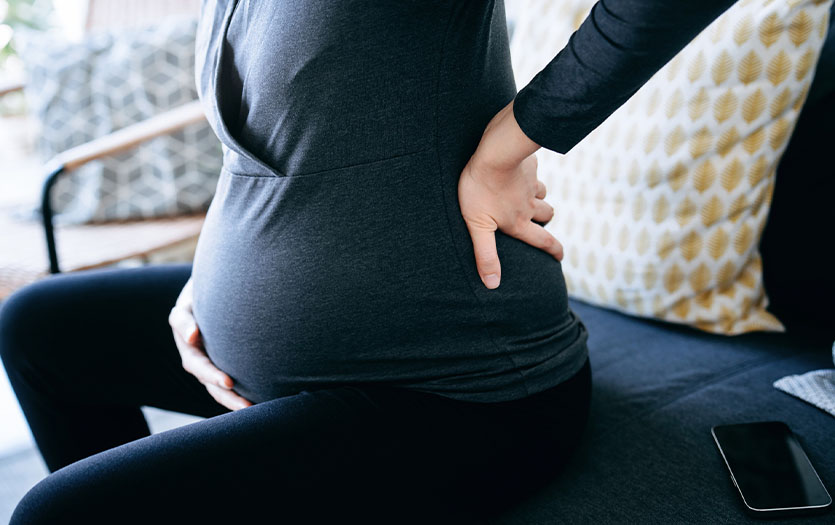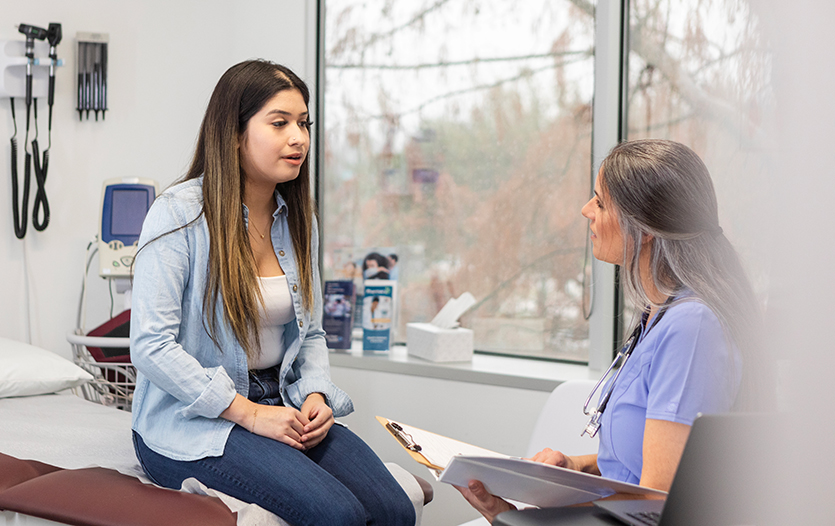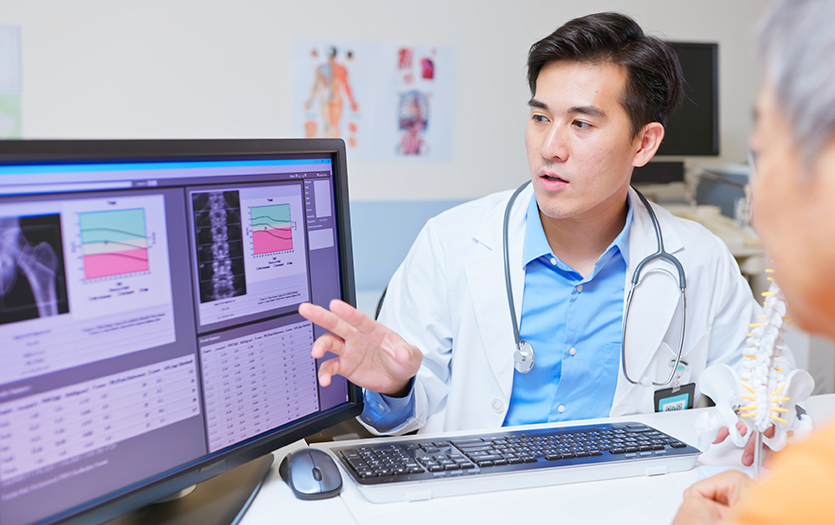
According to the American College of Obstetricians and Gynecologists, back pain is one of the most common problems women face during pregnancy, resulting in discomfort for between 50 and 70% of expecting mothers, especially in the later months. Fortunately, the pain usually goes away after the baby is born. Here, we’ll discuss what causes this unpleasant pregnancy symptom and ways to manage it.
What causes back pain during pregnancy?
As your uterus expands during pregnancy, it shifts your center of gravity. The process also stretches out and weakens your abdominal muscles. This changes your posture and puts a strain on your back. Additionally, the extra weight you’re carrying means more work for your muscles and increased stress on your joints. This is why your back may feel worse at the end of the day.
Do hormones contribute to back pain?
Yes, pregnancy hormones can contribute to back pain. To prepare for the passage of the baby through the birth canal, a hormone relaxes the ligaments in the joints of your pelvis to make them more flexible. Back pain can occur if the joints become too flexible.
What can you do to prevent or ease back pain during pregnancy?
The size and weight of your growing belly can change your posture and strain your back. Try some of these strategies for finding relief from the discomfort.
- Stand with your ears, shoulders and hips in a straight line. Try not to arch your back.
- Try not to stand for too long. When you stand, try resting one foot on a small box, yoga block or stool.
- Support your back. Place a pillow behind your low back when you sit.
- Sleep on a firm mattress. If your mattress is soft, you can try putting plywood under it.
- Sleep on your side. This position is best later in pregnancy. Keep one or both knees bent. It also may help to place a pillow between your knees and another under your belly. You can also try a full-length body pillow.
- Wear good shoes. Opt for low-heeled (but not flat) shoes with good arch support, such as walking shoes or athletic shoes.
- Try placing a heating pad or cold pack on your back. A warm bath or shower can also feel good.
- Try a belly band. Supporting your belly can take the strain off of your back and provide some relief.
- Talk to your OB/GYN or certified nurse-midwife about your pain. They may recommend physical therapy.
- Stay active. Movement usually helps with back pain. Swimming, walking and stretching can be great options for expecting mothers.
- Avoid heavy lifting. Pregnant women should lift only by raising from a squat, keeping your waist and back straight. Avoid stretching to reach something, such as on a high shelf.
When should I call my doctor?
It’s important to contact your OB/GYN or certified nurse-midwife if you have severe back pain, if the pain goes on for more than two weeks, or if in addition to back pain you experience any of the following symptoms:
- A fever
- Burning sensations during urination
- Vaginal bleeding
More for expecting mothers
If you found this information helpful, these posts on the Parkview Dashboard might be of interest:
Tips for reducing swelling in feet during pregnancy
Your pregnancy questions answered
Easing third trimester discomfort
Weight gain during pregnancy: How much is too much?
Copyrighted material adapted with permission from Healthwise, Incorporated. This information does not replace the advice of a doctor.




